
Constantin Ahlmann-Eltze
EMBL Heidelberg
Germany
EMBO Practical Course
Proof of COVID-19 vaccination or recovery is required to attend this on-site course. Please see EMBL’s COVID-19 safety policy for on-site events.
This course has been postponed from February 2022 and the selection process is finalised. Applications will not be re-opened.
Multi-omics studies that combine genomics, transcriptome, proteome and other modalities are increasingly common in fundamental biology research and biomedicine. Using multi-omics experimental designs at bulk or single-cell resolution can help identifying novel biomarkers or reveal insights into biological mechanisms. This course addresses the conceptual and mathematical foundations of state-of-the-art methods for analyzing the data that results from multi-omics studies. The course will provide an overview of advanced applications of multi-omics methods, provide insights into how to select the most appropriate methods and convey practical experiences by providing participants with hands-on training. Finally, we will provide opportunities for participants to apply the taught principles to their own problems and data.
This course is aimed at PhD students and post-docs in computational biology aiming to improve their skills in multi-omics data integration methodologies. Solid experience with R and/or Python and willingness to work with both is a prerequisite for this course.
The course will provide researchers with an overview and the theoretical foundations of state-of-the-art methods for multi-modal integration, with a focus on omics data. In practical sessions on relevant real-world examples from single-cell and bulk multi-omics studies, participants will gain familiarity with software implementations and learn about practical aspects, including quality assessment of inputs and outputs, method performance assessment, choice of tuning parameters, interpretation of the model fit and potential pitfalls.

EMBL Heidelberg
Germany
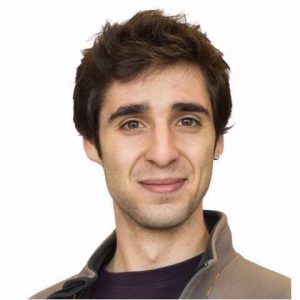
Babraham Institute
UK
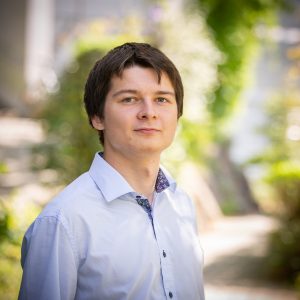
EMBL Heidelberg
Germany
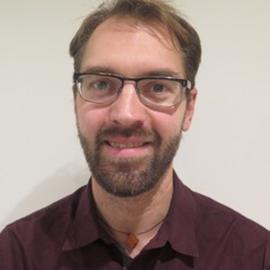
Goethe-University Frankfurt
Germany
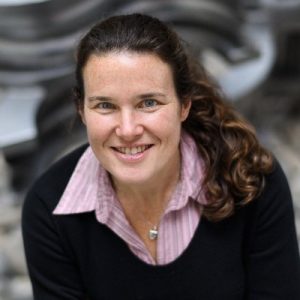
Stanford University
USA
(virtual)

EMBL Heidelberg
Germany
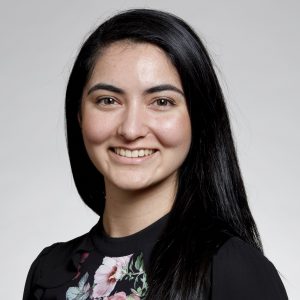
University of Sydney
Australia
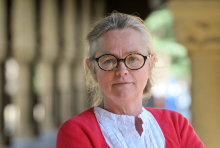
Stanford University
USA

EMBL Heidelberg
Germany

German Cancer Research Center
Germany

University Hospital Heidelberg
Germany
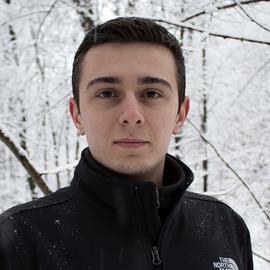
German Cancer Research Center
Germany

EMBL Heidelberg and German Cancer Research Center
Germany

EMBL Heidelberg
Germany

EMBL Heidelberg
Germany

EMBL Heidelberg
Germany

EMBL Heidelberg and German Cancer Research Center
Germany
German Cancer Research Center
Germany
(on maternal leave)

Course and Conference Officer
EMBL Heidelberg
Germany
Got something to say? Tweet it with #EMBOMultiOmics
The preliminary programme below is a draft and is subject to change.
| Time | Speakers | Location |
|---|---|---|
| 08:50 | Bus shuttle to EMBL | ISG bus stop |
| 09:00–09:30 | Registration | ATC reception |
| 09:30– 09:45 | Welcome and safety introductions Wolfgang Huber – EMBL Heidelberg, Germany | Courtyard Room |
| 09:45–10:00 | Course overview Oliver Stegle – EMBL Heidelberg / German Cancer Research Center, Germany Wolfgang Huber – EMBL Heidelberg, Germany | Courtyard Room |
| 10:00–11:15 | Icebreaking activity: Introduction round and “Challenges and Expectations” EMBL Scientific Training Team | Courtyard Room |
| 11:15–11:45 | Coffee break | Flex Lab |
| 11:45– 12:45 | Probabilistic factor models for integration of multi-omics data (MOFA) Oliver Stegle – EMBL Heidelberg and German Cancer Research Center, Germany | Courtyard Room |
| 12:45 – 13:45 | Lunch break | Canteen |
| 13:45– 15:15 | Practical session: MOFA – introduction and bulk data sets | Computer training lab |
| 15:15– 15:45 | Coffee break | Flex Lab |
| 15:45– 17:00 | Practical session: MOFA – introduction and bulk data sets (continued) | Computer training lab |
| 17:00– 18:00 | Overview and principles of data integration strategies in different fields Barbara Engelhardt – Stanford University, USA (virtual) | Courtyard Room |
| 18:15 – 18:30 | Bus shuttle to ISG | EMBL bus stop |
| 18:30– 19:30 | Course dinner | ISG hotel |
| 19:30– 21:30 | Participant short talks part I (their project and the challenges 7 min + Discussion) | ISG hotel |
| Time | Speakers | Location |
|---|---|---|
| 08:50 | Bus shuttle to EMBL | ISG bus stop |
| 09:00– 09:15 | Overview of the day | Courtyard Room |
| 09:15– 10:15 | Multi-omics analysis for a better understanding of complex traits and disease Judith Zaugg – EMBL Heidelberg, Germany | Courtyard Room |
| 10:15– 10:30 | Coffee break | Flex Lab |
| 10:30– 12:30 | Participant short talks part II (their project and the challenges 7 min + Discussion) | Courtyard Room |
| 12:30– 13:30 | Lunch break | Canteen |
| 13:30–13:45 | Group photo | |
| 13:45– 15:15 | Practical session: Data handling for multi-modal single cell data using muon | Computer training lab |
| 15:15– 16:15 | Computational approaches for single cell mosaic data integration Shila Ghazanfar – University of Sydney, Australia | Courtyard Room |
| 16:15 – 16:45 | Coffee break | Flex Lab |
| 16:45– 18:45 | Practical session: Single-cell multi omics integration (e.g. WNN, MOFA+) | Computer training lab |
| 18:45– 18:55 | Bus shuttle to ISG hotel | EMBL bus stop |
| 19:00– 20:00 | Course dinner | ISG hotel |
| 20:00– 21:00 | Discussion round “Problems and Challenges in Data Integration” | ISG hotel |
| Time | Speaker | Location |
|---|---|---|
| 08:50 | Bus shuttle to EMBL | ISG bus stop |
| 09:00–09:15 | Overview of the day | Courtyard Room |
| 09:15–10:15 | Data preprocessing and management as a first-class citizen Wolfgang Huber – EMBL Heidelberg, Germany | Courtyard Room |
| 10:15–11:15 | Practical session: Integrative analysis of own data | Computer training lab |
| 11:15–11:45 | Coffee break | Flex Lab |
| 11:45– 12:45 | Practical session: Integrative analysis of own data (continued) | Computer training lab |
| 12:45– 13:45 | Lunch break | Canteen |
| 13:45–15:45 | Practical session: Integrative analysis of own data (continued) | Computer training lab |
| 15:45–16:15 | Coffee break | Flex Lab |
| 16:15–17:15 | Interactive lecture on multi-table methods Susan Holmes – Stanford University, USA | Courtyard Room |
| 17:30–20:00 | Bus to city centre and free afternoon | EMBL bus stop |
| 20:00– 21:30 | Downtown dinner |
| Time | Speaker | Location |
|---|---|---|
| 08:50 | Bus shuttle to EMBL | ISG bus stop |
| 09:00– 09:15 | Overview of the day | Courtyard Room |
| 09:15–10:15 | Encoding Domain Knowledge in Multi-view Latent Variable Models, Florian Buettner – Goethe-University Frankfurt, Germany | Courtyard Room |
| 10:15– 11:15 | Practical session: Pathway informed factor models Florian Buettner – Goethe-University Frankfurt, Germany Arber Qoku – German Cancer Research Center, Germany | Computer training lab |
| 11:15–11:45 | Coffee break | Flex Lab |
| 11:45– 12:45 | Time for participants to prepare presentations | Courtyard Room |
| 12:45–13:45 | Lunch break | Canteen |
| 13:45– 15:15 | Final discussion round and presentation of own data analysis | Courtyard Room |
| 15:15–15:45 | Coffee break | Flex Lab |
| 15:45–16:30 | Final discussion round and presentation of own data analysis (continued) | Courtyard Room |
| 16:30– 17:00 | Feedback and closing remarks | Courtyard Room |
| 17:15 | Bus to Heidelberg train station and city center | EMBL bus stop |
For selection purposes, please note that your application will not be considered without a letter of motivation.
Important: We strongly encourage participants to run this R self-assessment prior to application in order to better asses their knowledge necessary to follow the course: https://forms.gle/JZJnbWpLiN6gBUKh6.
Registration fees include admission, course materials, COVID-19 safety measures, meals and coffee breaks. This EMBO course includes accommodation and transportation to and from the hotel to the venue.
| Academia | €250 |
| PhD Student | €250 |
| Industry | €1000 |
NO visa support letters will be issued until payment of the registration fee is confirmed.
The registration fee should be paid only after acceptance to the course. The results will be announced approximately 2-3 weeks after the application deadline.
After you have logged in and successfully registered, you will receive an email asking you to submit your motivation letter. Click on the link provided and enter your motivation letter in the text box provided. Alternatively you can submit your motivation letter by clicking on the link on the confirmation page directly after registering.
Instructions
Please note:
For more detailed information, follow the instructions provided in our video on how to submit a course motivation letter.
For further information about registration and motivation letter submission please refer to the FAQ page.
All academic and student registrants are invited to apply for a registration fee waiver, provided by the EMBL Advanced Training Centre Corporate Partnership Programme and EMBO. The registration fee waiver covers the registration sum that you have paid to attend the meeting. Conference participants are not required to pre-pay the registration fee to be selected for a fee waiver for a virtual meeting. If you have already paid the registration fee and are awarded a fee waiver, it will be reimbursed after the meeting. Course participants are required to pay the course fee in advance, which will then be reimbursed after the recipient has attended the course.
For participants and speakers with childcare responsibilities there is the possibility to apply for a grant, provided by EMBO, to offset childcare costs incurred when participating at a virtual event. Eligible costs include fees for a babysitter or childcare facility or travel costs for a care giver. Please note that priority will be given to early stage researchers. Costs will be reimbursed after the meeting only once a reimbursement form and original receipts have been received. Attendance at the event is required in order to be eligible to receive the reimbursement. In order to apply for this grant, you must be registered by the abstract submission deadline.
Applications for financial assistance can be submitted via the submission portal* (for the submission of abstracts for conferences or the submission of motivation letters for courses) by completing the Financial Assistance Application Section (underneath the section for entering abstract/motivation letter information). The link to the portal can be found in the registration confirmation email that you will receive after registering for the conference or course.
For conferences, if you are not submitting an abstract, you can still apply for financial assistance in the submission portal. Read the instructions on how to apply for financial assistance.
Note that priority will be given to those submitting an abstract to present at the conference. In your application you will be asked to answer questions regarding your motivation for applying, and, for registration fee waivers, the reasons why your lab cannot fund your attendance and how your attendance will make a difference to your career. Application for financial support will not affect the outcome of your registration application.
*For some events, applications for Childcare Grants will still be done by email. Information about the grant will be sent out shortly after the abstract/motivation letter deadline. Please contact the event Conference Officer if you have any questions.
The scientific organisers will select the recipients of registration fee waivers during the abstract selection process for conferences and the participant selection process for courses. Results will be announced approximately 3 – 4 weeks before the event start date. Selection results do not impact your admission to the meeting. Registration fee waiver selection is based on your current work or study location, your motivation for applying, the reasons for needing financial support and the impact this event will have on your career. Childcare grants are allocated based on career stage, with priority given to early stage researchers.
Check out this list of external funding opportunities or get more information on attending the conference as an event reporter.
For further information about financial assistance please refer to the FAQ page.
The registration fee includes accommodation for 4 nights in a single room (from 19-23 September). Any additional nights need to be booked and paid personally at the hotel.
Participants staying at the ISG Hotel (near EMBL): Shuttle buses will go from the ISG Hotel to EMBL and back, mornings and evenings. A bus schedule and location of the bus stops will be made available prior to the meeting.
Address: EMBL Heidelberg, Meyerhofstraße 1, 69117 Heidelberg, Germany
For further information on getting to EMBL Heidelberg visit our Travel Information page.
For enquiries about accommodation and local transportation please refer to the FAQ page.
Below you will find the software and technical requirements for this course.
The EMBL eCampus learning platform will be used to collaborate, communicate and network with all of the course participants. All participants will receive information on how to join shortly before the course. We recommend using Chrome, Safari or Mozilla Firefox browsers for eCampus.
Please find additional information including FAQs, terms and conditions, COVID-19 safety policy and travelling to EMBL on our Information for Participants page.
COVID-19 information for on-site events at EMBL Heidelberg can be found in our COVID-19 FAQs.
Sponsorship opportunities
We offer a variety of event sponsoring possibilities, with the flexibility to select a set sponsorship package or combine individual sponsorship options to suit your event budget. Discounts are available for companies sponsoring multiple events at EMBL Heidelberg. View other conferences, or contact sponsorship@embl.de for further information.
If you are interested in becoming a media partner of this event, please visit our media partnerships webpage.

Date: 20 - 23 Sep 2022
Location: EMBL Heidelberg
Deadline(s):
Application: Closed
Organisers:
Contact: Iva Gavran